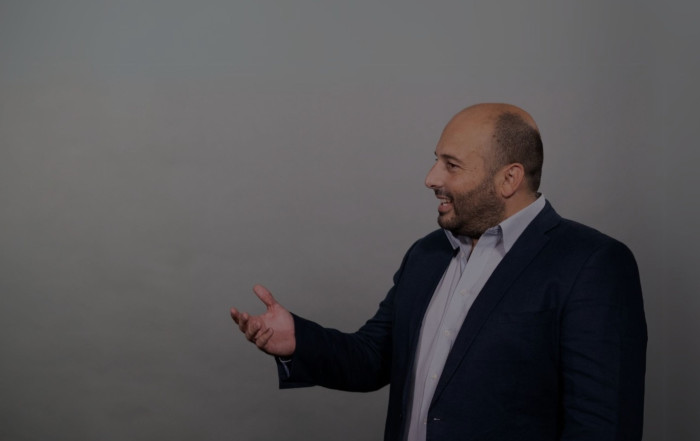Leadership Isn’t Always What It Seems
We often picture business leaders as confident, driven, and in control. They make big decisions, move companies forward, and carry the weight of others. But many do all this while feeling deeply alone.
Who Supports the Boss?
In our recent research conducted through Willingness in collaboration with the Malta Chamber of Commerce, we asked a simple but rarely discussed question: Who is taking care of the boss? The responses revealed something striking. Behind the ambition and strength of many Maltese leaders lies a silent, growing sense of disconnection and emotional fatigue.
What Sets Leaders Apart
Most leaders don’t land their roles by chance. They tend to share a distinct psychological profile. Our research showed that Maltese business owners and senior managers score high on conscientiousness, extraversion, and emotional stability. They work hard, communicate clearly, and take responsibility seriously.
Control vs Influence: The Hidden Cost of Self-Reliance
These leaders also show a strong internal locus of control. When things go wrong, they don’t blame others—they look inward. They ask what they could’ve done differently, how to improve, and where they fell short. This mindset helps them lead effectively, but it can also turn into a heavy emotional burden.
The Weight of Responsibility
When leaders treat everything as a personal responsibility, stepping away becomes harder. They begin absorbing their team’s stress, carrying the emotional load of the organisation. Over time, this creates a deep isolation few outside leadership circles truly understand.
Surrounded Yet Isolated
One of the most powerful insights from our research is that many leaders feel emotionally alone, despite being constantly surrounded by people. We refer to this as the “lonely at the top” experience. They show up in meetings and events but feel emotionally disconnected.
Control vs Influence: When Vulnerability Feels Risky
Leaders often struggle to show vulnerability. Admitting stress or doubts can feel like a risk to their credibility. Many avoid asking for help because their drive for independence, confidence, and self-reliance makes it hard to open up.
No One to Talk To
One business owner in our focus group said, “I have a lot of people who rely on me, but I don’t have anyone I can talk to about the pressure I feel.” That quote captures the emotional toll many leaders carry silently.
The Overlooked Burnout
Burnout usually gets discussed in relation to employees, but our data shows leaders are just as vulnerable—if not more. Over 54% of managers reported experiencing burnout symptoms, and 30% of employees said they could tell their boss was too stressed to lead effectively.
Everyone Feels the Impact
When leaders burn out, they don’t suffer alone. Morale drops, communication weakens, and team members start leaving. Ironically, the ones trying to hold everything together often watch it unravel.
Control vs Influence: The Strain in Medium-Sized Firms
This issue hits medium-sized companies in Malta especially hard. Leaders in these firms juggle multiple roles—HR, operations, strategy—without the support systems larger organisations offer. Unsurprisingly, 90% rated their workload as “high.”
First Comes Awareness
Recognising the issue marks the first step. But awareness alone isn’t enough—we need to act. Our research shows that leaders need safe spaces to talk. Coaching, supervision, and peer-to-peer support make a real difference.
Creating Structures That Help
Businesses must create systems that promote open conversation. This includes board-level check-ins, leadership development with emotional support, and mental health training for senior staff. These aren’t extras—they’re essential.
Control vs Influence: Redefining Strength
We must shift how we view leadership. Vulnerability isn’t weakness—it’s self-awareness. Strong leaders admit when they need help. They know connection fuels resilience.
A Culture That Supports Leaders
If there’s one thing I’ve learned through this project, it’s that Maltese leaders are incredibly resilient. But resilience doesn’t mean never falling apart. It means having space to recover.
Better Leadership Is Good Business
Building a culture that supports leaders benefits everyone. When leaders feel heard, rested, and supported, they build stronger teams and more sustainable organisations.
Let’s Drop the Superhero Myth
It’s time to stop expecting leaders to be superheroes. They’re human. Like everyone else, they need care, connection, and the freedom to breathe.
Share this Blog
Recent Thoughts
Rumours, Noise and Real Growth: Learning to Keep My Eyes on the Road
“Matthew is a closeted gay.”“Matthew jumps from woman to woman.”“He’s money-minded.”“I’ve heard he sees women for free if they ‘offer favours’.”“I’ve heard he’s
Ikigai vs. Workaholism: Why I’ve Given Up Perfectionism and Workaholic Tendencies
1) Facing Challenges Head-On Throughout my career, I've always faced problems head-on. Confronting challenges directly is part of who I am. However, there




